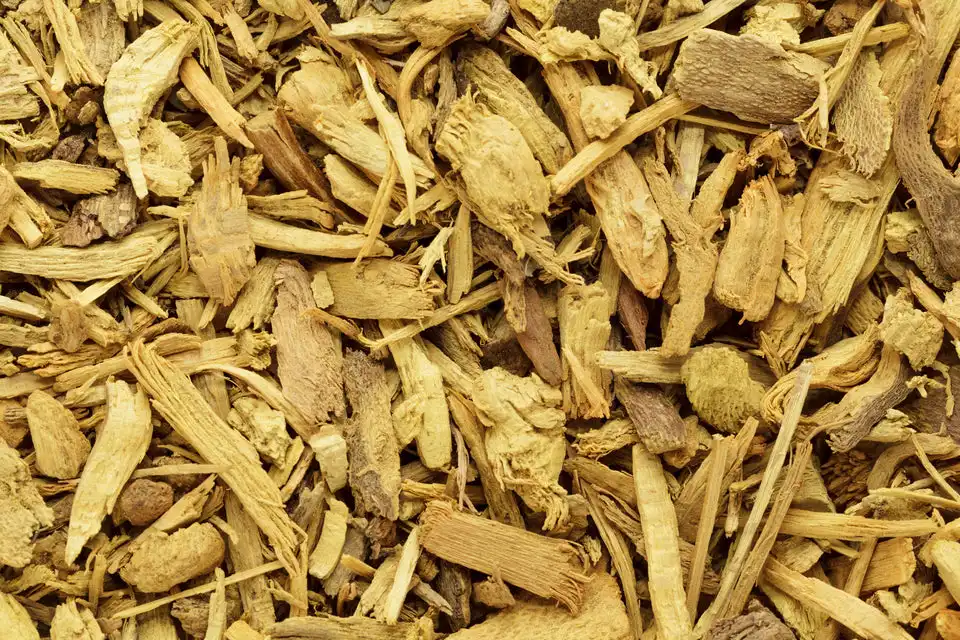Meet Demand: Berberine HCl for Functional Foods & Health Drinks
The functional food and beverage industry is experiencing unprecedented growth as consumers increasingly seek products that deliver both nutrition and targeted health benefits. Among the most promising natural compounds driving this market evolution is berberine HCl, a powerful alkaloid that has captured the attention of formulators worldwide. Meeting the growing demand for berberine HCl in functional foods and health drinks requires understanding its unique properties, applications, and the quality standards necessary for successful product development. This comprehensive guide explores how berberine HCl powder is revolutionizing the functional food sector and why manufacturers are prioritizing this exceptional ingredient in their formulations.

Understanding Berberine HCl's Role in Modern Functional Foods
The Science Behind Berberine HCl's Functional Properties
Berberine hydrochloride represents one of nature's most versatile bioactive compounds, extracted primarily from plants such as Berberis aristata, Hydrastis canadensis, and Coptis chinensis. This yellow crystalline powder, with its characteristic bitter taste and odorless nature, has demonstrated remarkable stability and bioavailability when incorporated into various food matrices. Research indicates that berberine HCl exhibits superior absorption compared to other berberine forms, making it particularly valuable for functional food applications where consistent bioactivity is essential. The compound's molecular structure allows for enhanced solubility in aqueous systems, which is crucial for beverage formulations and liquid functional foods. Modern extraction and purification processes ensure that berberine HCl powder maintains its potency while meeting the strict quality standards required for food applications. The alkaloid's inherent stability under various pH conditions and temperatures makes it an ideal candidate for diverse processing methods commonly used in functional food manufacturing.
Market Drivers for Berberine HCl Integration
The integration of berberine HCl into functional foods is driven by compelling market trends and consumer preferences that prioritize natural, scientifically-backed ingredients. Consumer awareness of metabolic health has reached unprecedented levels, with many seeking products that support healthy blood sugar levels, weight management, and cardiovascular function. This demand has created significant opportunities for food manufacturers to differentiate their products through the inclusion of berberine HCl powder. Market research indicates that functional foods containing berberine HCl command premium pricing due to their perceived health benefits and the compound's established research profile. The ingredient's versatility allows for incorporation into various product categories, from protein bars and nutritional drinks to fortified snacks and dietary supplements. Furthermore, the clean-label movement has positioned berberine HCl as an attractive alternative to synthetic compounds, as it offers natural origin combined with scientifically validated benefits. Regulatory acceptance of berberine HCl in food applications across multiple jurisdictions has further accelerated its adoption among forward-thinking manufacturers.
Formulation Considerations for Optimal Performance
Successful integration of berberine HCl into functional food formulations requires careful consideration of multiple factors that influence both stability and bioavailability. The compound's inherent bitter taste necessitates sophisticated flavoring strategies, often involving natural masking agents or complementary ingredients that enhance palatability without compromising efficacy. Berberine HCl powder's yellow coloration can impact product aesthetics, requiring thoughtful approach to color management in final formulations. Interaction studies reveal that certain minerals and proteins can affect berberine absorption, making it crucial to optimize ingredient combinations for maximum bioactivity. pH control becomes particularly important in beverage applications, as berberine HCl stability varies across different pH ranges. Manufacturing processes must account for the compound's sensitivity to extreme heat and light exposure, often requiring specialized handling and packaging protocols. Quality control measures specific to berberine HCl include regular potency testing, stability assessments, and contamination screening to ensure consistent product performance throughout shelf life.
Applications and Market Opportunities
Functional Beverage Innovation
The functional beverage sector represents one of the most dynamic applications for berberine HCl, with innovative manufacturers developing products that seamlessly blend health benefits with consumer appeal. Energy drinks enriched with berberine HCl offer sustained energy support through metabolic optimization rather than relying solely on stimulants, appealing to health-conscious consumers seeking natural performance enhancement. Sports nutrition beverages incorporating berberine HCl powder provide athletes with ingredients that may support healthy glucose metabolism and recovery processes. Ready-to-drink wellness shots have emerged as a popular format for delivering concentrated berberine HCl doses, often combined with complementary botanicals and vitamins for synergistic effects. Probiotic beverages enhanced with berberine HCl capitalize on the compound's potential gut health benefits, creating products that address multiple health concerns simultaneously. Coffee alternatives and herbal teas infused with berberine HCl appeal to consumers seeking functional beverages that fit seamlessly into daily routines. The development of stable, clear beverage formulations containing berberine HCl has opened new market segments, particularly in the premium wellness drink category where transparency and ingredient visibility are valued.
Nutraceutical and Supplement Integration
The nutraceutical industry has embraced berberine HCl as a cornerstone ingredient in sophisticated supplement formulations targeting metabolic health and wellness optimization. Capsule and tablet formulations benefit from berberine HCl powder's excellent flow properties and compressibility, enabling efficient manufacturing processes and consistent dosing. Multi-ingredient complexes combining berberine HCl with synergistic compounds such as chromium, alpha-lipoic acid, and cinnamon extract have gained popularity among consumers seeking comprehensive metabolic support. Powder-based supplement formats allow for flexible dosing and easy incorporation into existing nutrition routines, particularly appealing to consumers who prefer customizable supplement regimens. Time-release formulations utilizing berberine HCl address the compound's relatively short half-life, providing sustained release profiles that optimize bioavailability throughout the day. Professional-grade supplements targeting healthcare practitioners require the highest purity berberine HCl powder, often with specific analytical certificates and batch documentation. The development of vegetarian and vegan-friendly capsules containing berberine HCl has expanded market reach to accommodate diverse dietary preferences and ethical considerations.
Functional Food Product Development
Innovation in functional food products incorporating berberine HCl continues to expand across multiple categories, driven by consumer demand for convenient, health-supporting options. Protein bars and nutritional snacks enhanced with berberine HCl powder provide portable wellness solutions that fit busy lifestyles while delivering meaningful health benefits. Fortified cereals and granola products offer opportunities to reach mainstream consumers through familiar food formats, making berberine HCl accessible to broader demographics. Healthy confectionery products, including sugar-free gummies and chocolates, utilize berberine HCl as both a functional ingredient and a natural approach to sweetness management. Meal replacement products and nutritional shakes benefit from berberine HCl's metabolic support properties, creating comprehensive solutions for weight management and nutritional optimization. Baked goods formulated with berberine HCl require specialized techniques to maintain compound stability during processing while preserving taste and texture characteristics. Dairy alternatives and plant-based products enriched with berberine HCl appeal to health-conscious consumers following specific dietary patterns, expanding the ingredient's market penetration across diverse food categories.

Quality Standards and Manufacturing Excellence
Certification and Compliance Requirements
Manufacturing berberine HCl for functional food applications demands adherence to the most stringent quality standards and regulatory requirements across global markets. ISO9001 certification ensures systematic quality management throughout the production process, from raw material sourcing to final product packaging. HACCP implementation provides critical control points that prevent contamination and ensure product safety, particularly important given berberine HCl's use in direct food contact applications. FDA registration and compliance with Good Manufacturing Practices (GMP) standards are essential for market access in the United States, requiring comprehensive documentation and regular audits. HALAL and KOSHER certifications expand market opportunities by ensuring religious compliance, often requiring dedicated production lines and specialized handling protocols. European Union organic certification enables access to premium markets where organic claims command significant value premiums. SGS third-party verification provides independent validation of quality claims, building consumer confidence and supporting marketing assertions about product quality and purity.
Advanced Manufacturing Capabilities
State-of-the-art manufacturing facilities capable of producing high-quality berberine HCl must incorporate advanced extraction technologies, purification systems, and quality control measures that ensure consistent product specifications. Modern extraction processes utilizing supercritical CO2 or advanced solvent systems maximize yield while maintaining compound integrity, resulting in berberine HCl powder with superior purity profiles. Sophisticated purification techniques, including chromatographic separation and crystallization processes, remove impurities and concentrate active compounds to pharmaceutical-grade specifications. Environmental controls within manufacturing facilities maintain optimal temperature, humidity, and air quality conditions that preserve berberine HCl stability during processing and storage. Automated packaging systems minimize human contact and contamination risk while ensuring accurate fill weights and proper sealing of final products. Quality control laboratories equipped with HPLC, mass spectrometry, and other analytical instruments enable real-time monitoring of product quality throughout the manufacturing process. Traceability systems track raw materials from source through final product delivery, providing complete chain of custody documentation required for regulatory compliance and quality assurance.
Supply Chain Excellence and Reliability
Establishing reliable supply chains for berberine HCl requires strategic partnerships with qualified suppliers, robust logistics networks, and comprehensive risk management protocols that ensure consistent product availability. Geographic diversification of raw material sources reduces supply risk while maintaining access to high-quality botanical materials required for berberine HCl production. Strategic inventory management balances cost efficiency with supply security, maintaining adequate stock levels to meet fluctuating demand without compromising product freshness. Cold chain logistics and specialized packaging protect berberine HCl powder during transportation, preventing degradation and maintaining potency from manufacturer to end user. International shipping expertise and customs clearance capabilities enable efficient global distribution, supporting the international expansion of functional food manufacturers. Quality agreements with logistics partners establish clear responsibilities for product handling, storage conditions, and documentation requirements throughout the supply chain. Emergency response protocols and alternative sourcing strategies ensure business continuity even during supply chain disruptions, protecting customer relationships and market position.
Conclusion
The growing demand for berberine HCl in functional foods and health drinks reflects a fundamental shift toward evidence-based nutrition and natural health solutions. As consumers increasingly prioritize products that deliver tangible health benefits, berberine HCl stands out as a scientifically-validated ingredient that meets these evolving expectations. Success in this dynamic market requires partnerships with reliable suppliers who understand both the technical complexities and commercial opportunities associated with berberine HCl applications.
Shaanxi Pioneer Biotech Co., Ltd., established in 2012, represents the pinnacle of manufacturing excellence as a leading China berberine hcl factory, combining strategic location advantages in the "Medicine Herbs Valley" of Qinling Mountains with comprehensive certifications including ISO9001, HALAL, KOSHER, and FDA qualifications. As a trusted China berberine hcl supplier and China berberine hcl manufacturer, Pioneer Biotech offers berberine hcl wholesale solutions with over 3,000 tons annual production capacity, ensuring reliable supply for global markets. With competitive berberine hcl price structures and berberine hcl for sale programs that prioritize quality, the company delivers High Quality berberine hcl that meets the most demanding specifications. Whether you're developing innovative functional beverages, advanced nutraceuticals, or breakthrough food products, Pioneer Biotech's expertise and commitment to excellence make us your ideal partner. Contact us today at sales@pioneerbiotech.com to discover how our premium berberine HCl solutions can transform your product development goals into market-leading success stories.
References
1. Zhang, Y., Li, X., Zou, D., et al. "Treatment of Type 2 Diabetes and Dyslipidemia with the Natural Plant Alkaloid Berberine." Journal of Clinical Endocrinology & Metabolism , vol. 93, no. 7, 2008, pp. 2559-2565.
2. Hu, Y., Ehli, E.A., Kittelsrud, J., et al. "Lipid-lowering Effect of Berberine in Human Subjects and Rats." Phytomedicine , vol. 19, no. 10, 2012, pp. 861-867.
3. Dong, H., Wang, N., Zhao, L., Lu, F. "Berberine in the Treatment of Type 2 Diabetes Mellitus: A Systemic Review and Meta-Analysis." Evidence-Based Complementary and Alternative Medicine , vol. 2012, Article ID 591654.
4. Kumar, A., Ekavali, Chopra, K., Mukherjee, M., Pottabathini, R., Dhull, D.K. "Current Knowledge and Pharmacological Profile of Berberine: An Update." European Journal of Pharmacology , vol. 761, 2015, pp. 288-297.



